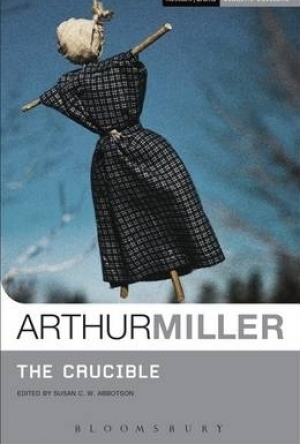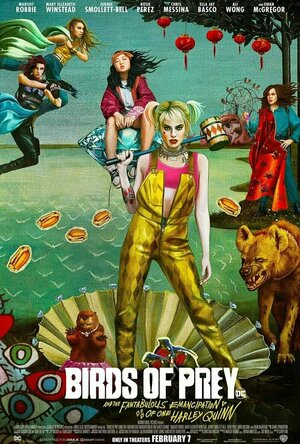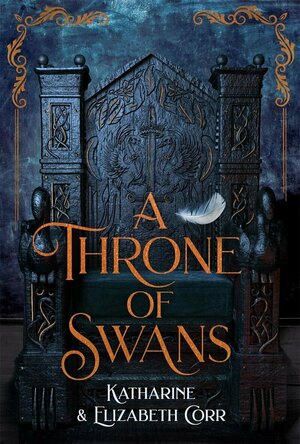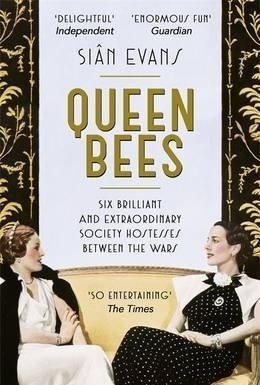Search
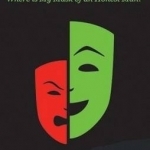
Where is My Mask of an Honest Man?
Book
Where is my Mask of an Honest Man? is a powerful collection of short stories set in and around...

London Super Scale A-Z Street Map
Travel and Navigation
App
KEY FEATURES ● Offline detailed street level map for the whole of the Central London area. ●...
Bob Mann (459 KP) rated Greyhound (2020) in Movies
Aug 9, 2020
Hanks and Stephen Graham. (1 more)
Tense cat and mouse hunting
Grey but exciting.
Here's a great movie trivia question for you.... which 2020 movies link Claire Duburcq and Elizabeth Shue, and why? The answer is at the end of this review!
The battle of the Atlantic, which ran from 1939 to the end of the war, was a key battleground of World War 2. Failure to supply the European battlefront with fresh supplies and troops from the States would spell certain failure. (The wiki page addressing this is here.) But it's a field of combat that has been relatively overlooked at the movies. Of the handful of feature films, the most famous are that famously stiff-upper-lipped British offering "The Cruel Sea" from 1953 and Wolfgang Petersen's original 1981 U-boat film, "Das Boot", seeing it from the German's side.
Here, the subject gets the full Tom Hanks treatment. Not only does he star in the movie, but he also wrote it, based on the C.S. Forester novel "The Good Shepherd".
We join Captain Krause (Tom Hanks, with a strangely German-sounding name!) on dry land awaiting his beloved Evelyn (Elizabeth Shue) for a proposal. But that's the last dry land we see in the movie, since Krause is captaining the US destroyer "Greyhound" on its maiden voyage to protect a convoy of UK and US ships heading for England. But danger lurks beneath the waves as a pack of U-boats attempt to sink as many vessels as possible.
The issue with a movie about a war-time transatlantic crossing is that the ships are grey, the sky is grey and the sea is grey. It's a monochromatic and rather depressing context for a movie. To combat that, the CGI used to recreate the action needs to be good, and thankfully the film delivers in that department.
Where I had quibbles - and I'm not sure whether this was in Hank's original screenplay or the result of director Aaron Schneider's attempts at "added flair" - was in stopping the action mid-scene for a zoom up above the clouds to see the Aurora Borealis. Unnecessary and distracting.
Where the film really scores is in the tense action sequences. As a viewer, I found myself straining forwards in my seat for the "ping" of the sonar! The cat and mouse games being played out with the hidden foe are certainly well done.... albeit a colleague of mine refuses to watch it because "torpedoes don't bounce off the sides of ships" as shown in the trailer!
Perhaps what might have made the film richer still would have been the view from the German side. Another star name as the 'heard but never seen' mocking U-boat commander might have turned this into even more of a Shakespearean battle-royale.
Overall, this is an enthralling and enjoyable watch that I would recommend. Tom Hanks delivers YET another compelling captain role. It seems to be the rank that he naturally gravitates to.... having the gravitas to command, but not being too far removed from the common man. Here he is supported by the omnipresent Stephen Graham, also equally good.
It's a great shame that this never got the wide-screen cinematic release, because Greyhound deserved it. Who knows, perhaps with cinemas spasmodically opening up, there's still time for a national release. That would be good, and I'd certainly go and see it again on the big screen.
And, by the way, the answer to my trivia question is this film - Greyhound - and 1917. The reason being that in both movies the actresses named were the sole female players within the whole cast.
(For the full graphical review, please visit https://bob-the-movie-man.com/2020/08/01/one-manns-movies-film-review-greyhound-2020/ .)
The battle of the Atlantic, which ran from 1939 to the end of the war, was a key battleground of World War 2. Failure to supply the European battlefront with fresh supplies and troops from the States would spell certain failure. (The wiki page addressing this is here.) But it's a field of combat that has been relatively overlooked at the movies. Of the handful of feature films, the most famous are that famously stiff-upper-lipped British offering "The Cruel Sea" from 1953 and Wolfgang Petersen's original 1981 U-boat film, "Das Boot", seeing it from the German's side.
Here, the subject gets the full Tom Hanks treatment. Not only does he star in the movie, but he also wrote it, based on the C.S. Forester novel "The Good Shepherd".
We join Captain Krause (Tom Hanks, with a strangely German-sounding name!) on dry land awaiting his beloved Evelyn (Elizabeth Shue) for a proposal. But that's the last dry land we see in the movie, since Krause is captaining the US destroyer "Greyhound" on its maiden voyage to protect a convoy of UK and US ships heading for England. But danger lurks beneath the waves as a pack of U-boats attempt to sink as many vessels as possible.
The issue with a movie about a war-time transatlantic crossing is that the ships are grey, the sky is grey and the sea is grey. It's a monochromatic and rather depressing context for a movie. To combat that, the CGI used to recreate the action needs to be good, and thankfully the film delivers in that department.
Where I had quibbles - and I'm not sure whether this was in Hank's original screenplay or the result of director Aaron Schneider's attempts at "added flair" - was in stopping the action mid-scene for a zoom up above the clouds to see the Aurora Borealis. Unnecessary and distracting.
Where the film really scores is in the tense action sequences. As a viewer, I found myself straining forwards in my seat for the "ping" of the sonar! The cat and mouse games being played out with the hidden foe are certainly well done.... albeit a colleague of mine refuses to watch it because "torpedoes don't bounce off the sides of ships" as shown in the trailer!
Perhaps what might have made the film richer still would have been the view from the German side. Another star name as the 'heard but never seen' mocking U-boat commander might have turned this into even more of a Shakespearean battle-royale.
Overall, this is an enthralling and enjoyable watch that I would recommend. Tom Hanks delivers YET another compelling captain role. It seems to be the rank that he naturally gravitates to.... having the gravitas to command, but not being too far removed from the common man. Here he is supported by the omnipresent Stephen Graham, also equally good.
It's a great shame that this never got the wide-screen cinematic release, because Greyhound deserved it. Who knows, perhaps with cinemas spasmodically opening up, there's still time for a national release. That would be good, and I'd certainly go and see it again on the big screen.
And, by the way, the answer to my trivia question is this film - Greyhound - and 1917. The reason being that in both movies the actresses named were the sole female players within the whole cast.
(For the full graphical review, please visit https://bob-the-movie-man.com/2020/08/01/one-manns-movies-film-review-greyhound-2020/ .)
BookwormMama14 (18 KP) rated Born of Persuasion (Price of Privilege, #1) in Books
Jan 2, 2019
Our leading lady, Julia Elliston, is the daughter of the famed Atheist William Elliston. She is young and naïve, her mother tried to protect her and shield her from the world outside. She has much to learn about the world and is in a delicate emotional state. Her entire life has begun to crumble, starting with the death of her mother. She soon learns that everything she thought she knew is a lie. How did her mother die exactly? And who is this mysterious guardian who wishes to remain anonymous? Her childhood sweetheart has betrayed her, yet is there hope for reconciliation? As we follow Julia’s journey of discovery we encounter a few other key players. Edward and Henry Auburn, brothers who fell in love with Julia and her best friend Elizabeth Windham as children. They made plans of their future together and were secretly betrothed. But now, all their hopes and dreams are threatened. Elizabeth’s mother, Mrs. Windham has taken it upon herself to find a husband for “poor Julia”. Lady Foxworth is intent upon playing matchmaker as well. Little does Julia know the vast change in life that could take place if she concedes to marry Mr. Macy. A man with extraordinary wealth that has promised to care for and protect Julia. But can he be trusted? When laws cannot protect Julia, will her life come to ruin? And will she take a step of faith towards the only One who remains constant in an ever changing world?
To be completely honest, I didn’t know what to think of this book most of the time I was reading it. Now that I have finished I will say that while I wasn’t 100% impressed with particulars of the content, it was a very well written book. I love the descriptive way Jessica Dotta drew me into the story. So much so, that I could imagine standing in the room with Julia. The language and style is one of my favorites for reading. The entire book is narrated by Julia who is looking back on her life much later, after the events have taken place. She hints at other mysteries in the story, but doesn’t give away too much. I was not impressed with the scenes between Mr. Macy and Julia where he was supposedly “courting” her. Although Julia remains a maiden by the end of the book, she allowed Macy’s advancements premature. It made me feel uncomfortable. Other than that, I really did enjoy Born of Persuasion. I am starting the second book Mark of Distinction, today.
To be completely honest, I didn’t know what to think of this book most of the time I was reading it. Now that I have finished I will say that while I wasn’t 100% impressed with particulars of the content, it was a very well written book. I love the descriptive way Jessica Dotta drew me into the story. So much so, that I could imagine standing in the room with Julia. The language and style is one of my favorites for reading. The entire book is narrated by Julia who is looking back on her life much later, after the events have taken place. She hints at other mysteries in the story, but doesn’t give away too much. I was not impressed with the scenes between Mr. Macy and Julia where he was supposedly “courting” her. Although Julia remains a maiden by the end of the book, she allowed Macy’s advancements premature. It made me feel uncomfortable. Other than that, I really did enjoy Born of Persuasion. I am starting the second book Mark of Distinction, today.
Becs (244 KP) rated The Crucible in Books
Oct 2, 2019
I absolutely love Arthur Miller and anything regarding witches/ the Salem Trials. So, the crucible for me is a five-star novel. Can we just take a moment to admire the writers of the 50’s and older as they don’t seem to be getting much hype lately? Like, literary classics are deemed school reads and not your typical everyday read. THIS NEEDS TO CHANGE.
Reading these in school and then giving them a reread five years after graduating, has shown a new light onto these novels. And has made me appreciate them more as a whole compared to when I read them in high school. If you haven’t read many literary classics, I recommend starting with something by Arthur Miller or George Orwell. Yes, they may be a bit hard to get into at first, but give it time. That’s the key when reading any book!
The Crucible by Arthur Miller
Genre: Literary Classic, Historical Fiction, Plays, Drama
Synopsis: “I believe that the reader will discover here the essential nature of one of the strangest and most awful chapters in human history,” Arthur Miller wrote of his classic play about the witch-hunts and trials in seventeenth-century Salem, Massachusetts. Based on historical people and real events, Miller’s drama is a searing portrait of a community engulfed by hysteria. In the rigid theocracy of Salem, rumors that women are practicing witchcraft galvanize the town’s most basic fears and suspicions; and when a young girl accuses Elizabeth Proctor of being a witch, self-righteous church leaders and townspeople insist that Elizabeth be brought to trial. The ruthlessness of the prosecutors and the eagerness of neighbor to testify against neighbor brilliantly illuminate the destructive power of socially sanctioned violence.
Written in 1953, The Crucible is a mirror Miller uses to reflect the anti-communist hysteria inspired by Senator Joseph McCarthy’s “witch-hunts” in the United States. Within the text itself, Miller contemplates the parallels, writing, “Political opposition… is given an inhumane overlay, which then justifies the abrogation of all normally applied customs of civilized behavior. A political policy is equated with moral right, and opposition to it with diabolical malevolence.”
WIth an introduction by Christopher Bigsby.
Audience/ Reading Level: High School +
Interests: Plays, Drama, Witches, the Salem Trials, Arthur Miller, Literary Classics.
Point of View: Third Person Omniscient
Difficulty Reading: With every literary classic, you run into the problem of the first 30% of the novel being a bore or hard to get into. The Crucible was only a bore in parts but taking the novel as a whole, it was a pretty easy read.
Promise: “I believe that the reader will discover here the essential nature of one of the strangest and most awful chapters in human history.”
Insights: The Crucible is based on true events and Arthur Miller has a way of explaining everything that was wrong with the way people lived. I.E. Woman did not have rights until the early 1920’s. This didn’t stop some countries/states to still not allow the woman to have rights. But taking The Crucible into perspective, the women that were charged with witchcraft were unable to explain themselves to the men. The men believed the accusers either because they were sleeping with them or because they were their family. Luckily, nowadays we don’t have this extreme of situations but it still does exist. The Crucible teaches all of its readers, young or old, many valuable lessons that are sometimes hard to witness. Plus, Miller correlates the events in the Crucible to the anti-communist McCarthyism of the 1950s.
Favorite Quotes: “I speak my own sins; I cannot judge another. I have no tongue for it.”
“Because it is my name! Because I cannot have another in my life! Because I lie and sign myself to lies! Because I am not worth the dust on the feet of them that hang! How may I live without my name? I have given you my soul; leave me my name!”
“You are pulling down heaven and raising up a whore”
What will you gain: A love for another literary classic and a love for Arthur Miller if you do not already love his writing. Plus, a great historical read.
Aesthetics: The witches, the trials, the way people take sides, I mean I can’t say much more without giving spoilers away. We wouldn’t want that, now would we?
“It is rare for people to be asked the question which puts them squarely in front of themselves”
Reading these in school and then giving them a reread five years after graduating, has shown a new light onto these novels. And has made me appreciate them more as a whole compared to when I read them in high school. If you haven’t read many literary classics, I recommend starting with something by Arthur Miller or George Orwell. Yes, they may be a bit hard to get into at first, but give it time. That’s the key when reading any book!
The Crucible by Arthur Miller
Genre: Literary Classic, Historical Fiction, Plays, Drama
Synopsis: “I believe that the reader will discover here the essential nature of one of the strangest and most awful chapters in human history,” Arthur Miller wrote of his classic play about the witch-hunts and trials in seventeenth-century Salem, Massachusetts. Based on historical people and real events, Miller’s drama is a searing portrait of a community engulfed by hysteria. In the rigid theocracy of Salem, rumors that women are practicing witchcraft galvanize the town’s most basic fears and suspicions; and when a young girl accuses Elizabeth Proctor of being a witch, self-righteous church leaders and townspeople insist that Elizabeth be brought to trial. The ruthlessness of the prosecutors and the eagerness of neighbor to testify against neighbor brilliantly illuminate the destructive power of socially sanctioned violence.
Written in 1953, The Crucible is a mirror Miller uses to reflect the anti-communist hysteria inspired by Senator Joseph McCarthy’s “witch-hunts” in the United States. Within the text itself, Miller contemplates the parallels, writing, “Political opposition… is given an inhumane overlay, which then justifies the abrogation of all normally applied customs of civilized behavior. A political policy is equated with moral right, and opposition to it with diabolical malevolence.”
WIth an introduction by Christopher Bigsby.
Audience/ Reading Level: High School +
Interests: Plays, Drama, Witches, the Salem Trials, Arthur Miller, Literary Classics.
Point of View: Third Person Omniscient
Difficulty Reading: With every literary classic, you run into the problem of the first 30% of the novel being a bore or hard to get into. The Crucible was only a bore in parts but taking the novel as a whole, it was a pretty easy read.
Promise: “I believe that the reader will discover here the essential nature of one of the strangest and most awful chapters in human history.”
Insights: The Crucible is based on true events and Arthur Miller has a way of explaining everything that was wrong with the way people lived. I.E. Woman did not have rights until the early 1920’s. This didn’t stop some countries/states to still not allow the woman to have rights. But taking The Crucible into perspective, the women that were charged with witchcraft were unable to explain themselves to the men. The men believed the accusers either because they were sleeping with them or because they were their family. Luckily, nowadays we don’t have this extreme of situations but it still does exist. The Crucible teaches all of its readers, young or old, many valuable lessons that are sometimes hard to witness. Plus, Miller correlates the events in the Crucible to the anti-communist McCarthyism of the 1950s.
Favorite Quotes: “I speak my own sins; I cannot judge another. I have no tongue for it.”
“Because it is my name! Because I cannot have another in my life! Because I lie and sign myself to lies! Because I am not worth the dust on the feet of them that hang! How may I live without my name? I have given you my soul; leave me my name!”
“You are pulling down heaven and raising up a whore”
What will you gain: A love for another literary classic and a love for Arthur Miller if you do not already love his writing. Plus, a great historical read.
Aesthetics: The witches, the trials, the way people take sides, I mean I can’t say much more without giving spoilers away. We wouldn’t want that, now would we?
“It is rare for people to be asked the question which puts them squarely in front of themselves”
Lee (2222 KP) rated Birds of Prey (And the Fantabulous Emancipation of One Harley Quinn) (2020) in Movies
Feb 8, 2020
Without a doubt, the best thing about the disastrous Suicide Squad movie of 2016 was Margot Robbie as Harley Quinn. With what little she was given to work with, she went all in and truly made the role her own. A return to the character was inevitable really, and thankfully, that return is not in the form of Suicide Squad 2 but Birds of Prey and the fabulous emancipation of one Harley Quinn.
When we join Harley, she’s just broken up with the Joker. A nice little animated intro, with voiceover from Harley, gives us a quick overview of her life from birth, through childhood and eventually to the point where her and Mr J part ways. She hasn’t made it public knowledge just yet though, for fear of what might happen when word gets out that she no longer has the Joker’s protection. Instead, Harley buys herself a hyena called Bruce, takes part in vicious roller derbys and spends her nights partying at the nightclub of Gotham crime lord Roman Sionis (Ewan McGregor).
Following an explosive public declaration of her relationship status - driving a big truck into Ace Chemicals, the spot where Harley first pledged herself to Mr J - Harley begins to find her life becoming increasingly entwined with that of the other Birds of Prey that will eventually make up the all-women squad. Renee Montoya (Rosie Perez) is a detective, in the process of investigating a series of murders by a crossbow wielding killer named Huntress (Mary Elizabeth Winstead) before the chemical factory explosion. Black Canary (Jurnee Smollett-Bell), a singer at Sionis’ nightclub and packing a voice powerful enough to shatter glass. And finally, young pickpocket Cassandra Cain (Ella Jay Basco). All of these women either have an axe to grind with men that treated them badly, or are currently being hunted by most of Gotham City’s bad guys. Their coming together, and subsequent emancipation, forms the basis of the movie.
That initial process involves a lot of time shifting and flashbacks while we are introduced to the key characters and plot points, before jumping back minutes, hours or even days in order to start filling in the narrative blanks. It’s messy at times and for the most part, it doesn’t really work either. Thankfully though, it’s a tactic that is ditched well before the halfway point.
The ‘Birds’ all have interesting back stories, and great potential in some cases too, but for the most part it’s Harley who is front and centre, stealing the limelight, and it never really feels as though we get to experience the others very much in comparison. Outside of the female leads, I didn’t really think much of Ewan McGregor and didn’t feel him to be a very convincing threat at all.
Birds of Prey is jam packed with creatively chaotic action and fight scenes from Chad Stahelski, who was responsible for the John Wick movies. They are confidently executed, at times cartoon-like, and usually accompanied by a kick-ass soundtrack.
I was initially going to give this a 6/10. But then I looked back at my rating for Suicide Squad and saw that was the rating I gave that. Birds of Prey is good, but not great. However, it is definitely a big improvement on Suicide Squad, so for that I give it a 7.
When we join Harley, she’s just broken up with the Joker. A nice little animated intro, with voiceover from Harley, gives us a quick overview of her life from birth, through childhood and eventually to the point where her and Mr J part ways. She hasn’t made it public knowledge just yet though, for fear of what might happen when word gets out that she no longer has the Joker’s protection. Instead, Harley buys herself a hyena called Bruce, takes part in vicious roller derbys and spends her nights partying at the nightclub of Gotham crime lord Roman Sionis (Ewan McGregor).
Following an explosive public declaration of her relationship status - driving a big truck into Ace Chemicals, the spot where Harley first pledged herself to Mr J - Harley begins to find her life becoming increasingly entwined with that of the other Birds of Prey that will eventually make up the all-women squad. Renee Montoya (Rosie Perez) is a detective, in the process of investigating a series of murders by a crossbow wielding killer named Huntress (Mary Elizabeth Winstead) before the chemical factory explosion. Black Canary (Jurnee Smollett-Bell), a singer at Sionis’ nightclub and packing a voice powerful enough to shatter glass. And finally, young pickpocket Cassandra Cain (Ella Jay Basco). All of these women either have an axe to grind with men that treated them badly, or are currently being hunted by most of Gotham City’s bad guys. Their coming together, and subsequent emancipation, forms the basis of the movie.
That initial process involves a lot of time shifting and flashbacks while we are introduced to the key characters and plot points, before jumping back minutes, hours or even days in order to start filling in the narrative blanks. It’s messy at times and for the most part, it doesn’t really work either. Thankfully though, it’s a tactic that is ditched well before the halfway point.
The ‘Birds’ all have interesting back stories, and great potential in some cases too, but for the most part it’s Harley who is front and centre, stealing the limelight, and it never really feels as though we get to experience the others very much in comparison. Outside of the female leads, I didn’t really think much of Ewan McGregor and didn’t feel him to be a very convincing threat at all.
Birds of Prey is jam packed with creatively chaotic action and fight scenes from Chad Stahelski, who was responsible for the John Wick movies. They are confidently executed, at times cartoon-like, and usually accompanied by a kick-ass soundtrack.
I was initially going to give this a 6/10. But then I looked back at my rating for Suicide Squad and saw that was the rating I gave that. Birds of Prey is good, but not great. However, it is definitely a big improvement on Suicide Squad, so for that I give it a 7.

Oxford Handbook of Clinical Medicine,Ninth Edition
Medical and Health & Fitness
App
This Oxford University Press source of information is developed by MedHand Mobile Libraries. Improve...
Ivana A. | Diary of Difference (1171 KP) rated A Throne of Swans in Books
Aug 3, 2020
<a href="https://amzn.to/2Wi7amb">Wishlist</a>; | <a
<a href="https://diaryofdifference.com/">Blog</a>; | <a href="https://www.facebook.com/diaryofdifference/">Facebook</a>; | <a href="https://twitter.com/DiaryDifference">Twitter</a>; | <a href="https://www.instagram.com/diaryofdifference/">Instagram</a>; | <a href="https://www.pinterest.co.uk/diaryofdifference/pins/">Pinterest</a>;
#1 <a href="https://www.goodreads.com/review/show/3069605291">A Throne of Swans</a> - ★★★★
<img src="https://diaryofdifference.com/wp-content/uploads/2020/05/Book-Review-Banner-52.png"/>;
A Throne of Swans by Katharine & Elizabeth Corr is the first book in the series. An epic fantasy about courage, secrets, betrayals and love.
<b><i>Synopsis</i></b>
When her father dies, Aderyn inherits the role of Protector of Atratys, a dominion in a kingdom where nobles can transform into birds. Aderyn's ancestral bird is a swan, But since witnessing the death of her mother, Aderyn hasn't been able to transform. Aderyn must venture to the Citadel to seek the truth about her mother's death and to fight for the land she has vowed to protect!
<b><i>My Thoughts:</i></b>
From the first moment I read the synopsis of A Thorn of Swans, I was intrigued. I am a sucker for fantasies that involve badass princesses. The cover of this book is also incredible.
From the very first pages we familiarise ourselves with Aderyn. She has already lost her mother, in fact, watched her die, and now she has lost her father too. She has been grieving her whole life, but she has also been wanting to find out what really happened that day. When her father dies and some clues are unveiled, she needs to travel to the Citadel to find answers.
However, this decision comes with a huge risk because of her current inability to transform into a swan. The punishment, if someone finds out the truth, is death.
On this trip, she is accompanied by Lucien, who is there to serve as an advisor and protector for Aderyn. They have a dynamic and interesting relationship, bonding over their vows to protect their kingdom. Lucien is also one of the few people that knows Aderyn cannot transform.
Following Aderyn's story, we witness revealing of secrets, betrayals, drama and gossip. She is determined to find answers, which sometimes includes trusting the wrong people and finding out more than she can cope with.
I was struggling with the fact that this book lacks strong side characters. People that are not main characters, but who you root for. Aderyn was an amazing character, but also the only one that had everything it takes.
<b><i>The story was very unpredictable until the very end, and quite unexpected at all times.</i></b>
I loved the plot twists and the cliffhanger at the end. I also shipped the romance, so I was quite perplexed with how the book ended regarding the romantic topic. Some questions remained unanswered and I am sure that the second book in the series will tackle them.
<b><i>I highly recommend A Throne of Swans if you love epic fantasies, castles, kingdoms and cool princesses!</i></b>
Thank you to ReadersFirst and Hot Key Books, for sending me a copy of this book in exchange for an honest review.
<a href="https://diaryofdifference.com/">Blog</a>; | <a href="https://www.facebook.com/diaryofdifference/">Facebook</a>; | <a href="https://twitter.com/DiaryDifference">Twitter</a>; | <a href="https://www.instagram.com/diaryofdifference/">Instagram</a>; | <a href="https://www.pinterest.co.uk/diaryofdifference/pins/">Pinterest</a>;
#1 <a href="https://www.goodreads.com/review/show/3069605291">A Throne of Swans</a> - ★★★★
<img src="https://diaryofdifference.com/wp-content/uploads/2020/05/Book-Review-Banner-52.png"/>;
A Throne of Swans by Katharine & Elizabeth Corr is the first book in the series. An epic fantasy about courage, secrets, betrayals and love.
<b><i>Synopsis</i></b>
When her father dies, Aderyn inherits the role of Protector of Atratys, a dominion in a kingdom where nobles can transform into birds. Aderyn's ancestral bird is a swan, But since witnessing the death of her mother, Aderyn hasn't been able to transform. Aderyn must venture to the Citadel to seek the truth about her mother's death and to fight for the land she has vowed to protect!
<b><i>My Thoughts:</i></b>
From the first moment I read the synopsis of A Thorn of Swans, I was intrigued. I am a sucker for fantasies that involve badass princesses. The cover of this book is also incredible.
From the very first pages we familiarise ourselves with Aderyn. She has already lost her mother, in fact, watched her die, and now she has lost her father too. She has been grieving her whole life, but she has also been wanting to find out what really happened that day. When her father dies and some clues are unveiled, she needs to travel to the Citadel to find answers.
However, this decision comes with a huge risk because of her current inability to transform into a swan. The punishment, if someone finds out the truth, is death.
On this trip, she is accompanied by Lucien, who is there to serve as an advisor and protector for Aderyn. They have a dynamic and interesting relationship, bonding over their vows to protect their kingdom. Lucien is also one of the few people that knows Aderyn cannot transform.
Following Aderyn's story, we witness revealing of secrets, betrayals, drama and gossip. She is determined to find answers, which sometimes includes trusting the wrong people and finding out more than she can cope with.
I was struggling with the fact that this book lacks strong side characters. People that are not main characters, but who you root for. Aderyn was an amazing character, but also the only one that had everything it takes.
<b><i>The story was very unpredictable until the very end, and quite unexpected at all times.</i></b>
I loved the plot twists and the cliffhanger at the end. I also shipped the romance, so I was quite perplexed with how the book ended regarding the romantic topic. Some questions remained unanswered and I am sure that the second book in the series will tackle them.
<b><i>I highly recommend A Throne of Swans if you love epic fantasies, castles, kingdoms and cool princesses!</i></b>
Thank you to ReadersFirst and Hot Key Books, for sending me a copy of this book in exchange for an honest review.
Factually Accurate
I received this book for free through Goodreads First Reads.
A spectacle of celebrity, talent and burning ambition, Queen Bees combines the biographical stories of six ambitious women who helped to shape the standards of British society between the two world wars. Londoner Siân Evans is a cultural historian who has previously worked with the Victoria and Albert Museum, National Trust and Design Museum, and takes great lengths to thoroughly research into her written subject in order to portray a highly accurate insight to the lives of historical figures. Due to the non-existent political status of women in the early 1900s, the women featured in this book are virtually unknown today, yet they had a great impact during the 20s and 30s and helped to shape the Britain of today.
Although not necessarily born into it, circumstances such as marriage meant these six women were regarded as upper class. In no particular order, the names impacting on the social revolution and thus featured in Queen Bees are as follows: Lady Nancy Astor, the first female MP; Lady Sybil Colefax, who became a friend of Edward VIII; Lady Emerald Cunard, also connected with the royal family; Mrs. Ronnie Greville, a rather formidable woman; Lady Edith Londonderry, the founder of the Women’s Legion; and Laura Corrigan, the youngest of the set. Evans talks the reader through these women’s careers as professional hostesses as they compete to throw the better party, entertaining famous writers and actors as well as members of royalty, both national and foreign.
What is perhaps the most interesting, and indeed the most worth learning, is the way a couple of these women altered the future of the British monarchy. Without their interference the future George VI would never have married Elizabeth Bowes-Lyon, and without their involvement in the relationship between Edward VIII and Wallis Simpson, George VI would never have come to the throne. This is such an important aspect of British history that has been widely left out and ignored. Without these hostesses influence we would all be experiencing a slightly different life.
In terms of the actual writing, Siân Evans manages fairly well to engage the reader as she relates the factual story in a more or less chronological way. A slight issue is the quick, often undetected, move from one woman to the next, resulting in a lot of confusion about who is who particularly at the beginning of the book. A lot of the narrative features other key figures from the same period and often moves away from the main characters, which, whilst interesting, is not what the reader necessarily expected from a book whose title Queen Bees suggested it was only going to be about the women’s lives.
Footnotes, quotes and extracts from letters and diaries help to make the book appear reliable, factual and believable. Some of the content, without back up, would have seemed rather fanciful or exaggerated. Queen Bees can be read as a source of entertainment or as a citation for historical research. What is found within these pages is a more unbiased account of the early twentieth century than would be found in numerous male dominated history textbooks.
Mature readers of all ages are likely to gain something from reading Queen Bees – pleasure, knowledge etc., however it is most likely to appeal to the contemporary feminist. With this in mind, be aware that the six hostesses were not feminists of their time; they were not involved in Suffragette movements and were fairly content to live off money earned by their husbands or fathers. Yet, on the other hand, they impacted on the future of Britain as much as the male politicians of the time. Highly political in content, Queen Bees is worth reading to discover our own history, but be prepared for initial confusion over who is who and rather lengthy paragraphs.
A spectacle of celebrity, talent and burning ambition, Queen Bees combines the biographical stories of six ambitious women who helped to shape the standards of British society between the two world wars. Londoner Siân Evans is a cultural historian who has previously worked with the Victoria and Albert Museum, National Trust and Design Museum, and takes great lengths to thoroughly research into her written subject in order to portray a highly accurate insight to the lives of historical figures. Due to the non-existent political status of women in the early 1900s, the women featured in this book are virtually unknown today, yet they had a great impact during the 20s and 30s and helped to shape the Britain of today.
Although not necessarily born into it, circumstances such as marriage meant these six women were regarded as upper class. In no particular order, the names impacting on the social revolution and thus featured in Queen Bees are as follows: Lady Nancy Astor, the first female MP; Lady Sybil Colefax, who became a friend of Edward VIII; Lady Emerald Cunard, also connected with the royal family; Mrs. Ronnie Greville, a rather formidable woman; Lady Edith Londonderry, the founder of the Women’s Legion; and Laura Corrigan, the youngest of the set. Evans talks the reader through these women’s careers as professional hostesses as they compete to throw the better party, entertaining famous writers and actors as well as members of royalty, both national and foreign.
What is perhaps the most interesting, and indeed the most worth learning, is the way a couple of these women altered the future of the British monarchy. Without their interference the future George VI would never have married Elizabeth Bowes-Lyon, and without their involvement in the relationship between Edward VIII and Wallis Simpson, George VI would never have come to the throne. This is such an important aspect of British history that has been widely left out and ignored. Without these hostesses influence we would all be experiencing a slightly different life.
In terms of the actual writing, Siân Evans manages fairly well to engage the reader as she relates the factual story in a more or less chronological way. A slight issue is the quick, often undetected, move from one woman to the next, resulting in a lot of confusion about who is who particularly at the beginning of the book. A lot of the narrative features other key figures from the same period and often moves away from the main characters, which, whilst interesting, is not what the reader necessarily expected from a book whose title Queen Bees suggested it was only going to be about the women’s lives.
Footnotes, quotes and extracts from letters and diaries help to make the book appear reliable, factual and believable. Some of the content, without back up, would have seemed rather fanciful or exaggerated. Queen Bees can be read as a source of entertainment or as a citation for historical research. What is found within these pages is a more unbiased account of the early twentieth century than would be found in numerous male dominated history textbooks.
Mature readers of all ages are likely to gain something from reading Queen Bees – pleasure, knowledge etc., however it is most likely to appeal to the contemporary feminist. With this in mind, be aware that the six hostesses were not feminists of their time; they were not involved in Suffragette movements and were fairly content to live off money earned by their husbands or fathers. Yet, on the other hand, they impacted on the future of Britain as much as the male politicians of the time. Highly political in content, Queen Bees is worth reading to discover our own history, but be prepared for initial confusion over who is who and rather lengthy paragraphs.
<i>I received this book for free through Goodreads First Reads.</i>
A spectacle of celebrity, talent and burning ambition, <i>Queen Bees</i> combines the biographical stories of six ambitious women who helped to shape the standards of British society between the two world wars. Londoner Siân Evans is a cultural historian who has previously worked with the <i>Victoria and Albert Museum, National Trust </i>and <i>Design Museum</i>, and takes great lengths to thoroughly research into her written subject in order to portray a highly accurate insight to the lives of historical figures. Due to the non-existent political status of women in the early 1900s, the women featured in this book are virtually unknown today, yet they had a great impact during the 20s and 30s and helped to shape the Britain of today.
Although not necessarily born into it, circumstances such as marriage meant these six women were regarded as upper class. In no particular order, the names impacting on the social revolution and thus featured in <i>Queen Bees</i> are as follows: Lady Nancy Astor, the first female MP; Lady Sybil Colefax, who became a friend of Edward VIII; Lady Emerald Cunard, also connected with the royal family; Mrs. Ronnie Greville, a rather formidable woman; Lady Edith Londonderry, the founder of the Women’s Legion; and Laura Corrigan, the youngest of the set. Evans talks the reader through these women’s careers as professional hostesses as they compete to throw the better party, entertaining famous writers and actors as well as members of royalty, both national and foreign.
What is perhaps the most interesting, and indeed the most worth learning, is the way a couple of these women altered the future of the British monarchy. Without their interference the future George VI would never have married Elizabeth Bowes-Lyon, and without their involvement in the relationship between Edward VIII and Wallis Simpson, George VI would never have come to the throne. This is such an important aspect of British history that has been widely left out and ignored. Without these hostesses influence we would all be experiencing a slightly different life.
In terms of the actual writing, Siân Evans manages fairly well to engage the reader as she relates the factual story in a more or less chronological way. A slight issue is the quick, often undetected, move from one woman to the next, resulting in a lot of confusion about who is who particularly at the beginning of the book. A lot of the narrative features other key figures from the same period and often moves away from the main characters, which, whilst interesting, is not what the reader necessarily expected from a book whose title <i>Queen Bees</i> suggested it was only going to be about the women’s lives.
Footnotes, quotes and extracts from letters and diaries help to make the book appear reliable, factual and believable. Some of the content, without back up, would have seemed rather fanciful or exaggerated. <i>Queen Bees</i> can be read as a source of entertainment or as a citation for historical research. What is found within these pages is a more unbiased account of the early twentieth century than would be found in numerous male dominated history textbooks.
Mature readers of all ages are likely to gain something from reading <i>Queen Bees</i> – pleasure, knowledge etc., however it is most likely to appeal to the contemporary feminist. With this in mind, be aware that the six hostesses were not feminists of their time; they were not involved in Suffragette movements and were fairly content to live off money earned by their husbands or fathers. Yet, on the other hand, they impacted on the future of Britain as much as the male politicians of the time. Highly political in content, <i>Queen Bees </i>is worth reading to discover our own history, but be prepared for initial confusion over who is who and rather lengthy paragraphs.
A spectacle of celebrity, talent and burning ambition, <i>Queen Bees</i> combines the biographical stories of six ambitious women who helped to shape the standards of British society between the two world wars. Londoner Siân Evans is a cultural historian who has previously worked with the <i>Victoria and Albert Museum, National Trust </i>and <i>Design Museum</i>, and takes great lengths to thoroughly research into her written subject in order to portray a highly accurate insight to the lives of historical figures. Due to the non-existent political status of women in the early 1900s, the women featured in this book are virtually unknown today, yet they had a great impact during the 20s and 30s and helped to shape the Britain of today.
Although not necessarily born into it, circumstances such as marriage meant these six women were regarded as upper class. In no particular order, the names impacting on the social revolution and thus featured in <i>Queen Bees</i> are as follows: Lady Nancy Astor, the first female MP; Lady Sybil Colefax, who became a friend of Edward VIII; Lady Emerald Cunard, also connected with the royal family; Mrs. Ronnie Greville, a rather formidable woman; Lady Edith Londonderry, the founder of the Women’s Legion; and Laura Corrigan, the youngest of the set. Evans talks the reader through these women’s careers as professional hostesses as they compete to throw the better party, entertaining famous writers and actors as well as members of royalty, both national and foreign.
What is perhaps the most interesting, and indeed the most worth learning, is the way a couple of these women altered the future of the British monarchy. Without their interference the future George VI would never have married Elizabeth Bowes-Lyon, and without their involvement in the relationship between Edward VIII and Wallis Simpson, George VI would never have come to the throne. This is such an important aspect of British history that has been widely left out and ignored. Without these hostesses influence we would all be experiencing a slightly different life.
In terms of the actual writing, Siân Evans manages fairly well to engage the reader as she relates the factual story in a more or less chronological way. A slight issue is the quick, often undetected, move from one woman to the next, resulting in a lot of confusion about who is who particularly at the beginning of the book. A lot of the narrative features other key figures from the same period and often moves away from the main characters, which, whilst interesting, is not what the reader necessarily expected from a book whose title <i>Queen Bees</i> suggested it was only going to be about the women’s lives.
Footnotes, quotes and extracts from letters and diaries help to make the book appear reliable, factual and believable. Some of the content, without back up, would have seemed rather fanciful or exaggerated. <i>Queen Bees</i> can be read as a source of entertainment or as a citation for historical research. What is found within these pages is a more unbiased account of the early twentieth century than would be found in numerous male dominated history textbooks.
Mature readers of all ages are likely to gain something from reading <i>Queen Bees</i> – pleasure, knowledge etc., however it is most likely to appeal to the contemporary feminist. With this in mind, be aware that the six hostesses were not feminists of their time; they were not involved in Suffragette movements and were fairly content to live off money earned by their husbands or fathers. Yet, on the other hand, they impacted on the future of Britain as much as the male politicians of the time. Highly political in content, <i>Queen Bees </i>is worth reading to discover our own history, but be prepared for initial confusion over who is who and rather lengthy paragraphs.


